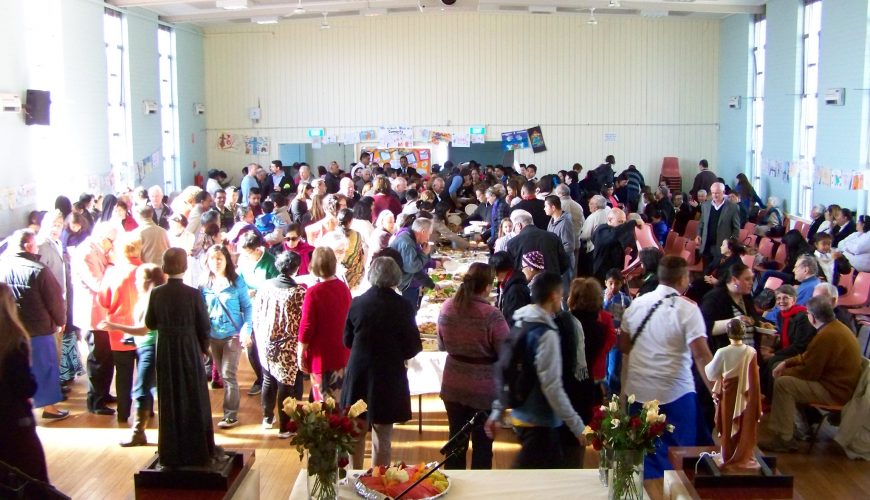The Bad too are invited, not without a Garment
The scandal caused by now disgraced Cardinal Giovanni Becciu has been another challenge for the Holy Father Pope Francis. What should the Holy Father do with such baddies in the Church? Such scenarios were present all through history, starting with the early Church. Evangelist Matthew reflected on a similar situation in his community in Matthew 22:1-14.
Jesus presented the Kingdom of God as a celebration like having a feast with good food and drinks. It is like a wedding feast, Jesus said. The story told by Matthew is to be read allegorically. The people who were invited to the feast initially were the Jews who did not convert to Jesus’ ways. Where they missed out, people from the ‘the cross roads’ are invited. This invitation and acceptance was all inclusive, opening up the Kingdom of God to the whole world. To the story told by Jesus, Matthew adds commentary on the devastation of Jerusalem in AD 70 by the Romans. “The king was furious.” Matthew wrote. “He despatched his troops, destroyed those murderers and burned their town.” Here the king is not just a host, but presented as the ruler. Jesus who has authority is inviting the good and bad alike to the Kingdom. The Church is a mix of the good and the bad. The Church is not just for the righteous. But the story told by Jesus has a twist at the end. “So these servants went out on to the roads and collected together everyone they could find, bad and good alike; and the wedding hall was filled with guests. When the king came in to look at the guests he noticed one man who was not wearing a wedding garment, and said to him, “ How did you get in here, my friend, without a wedding garment?” And the man was silent. Then the king said to the attendants, “Bind him hand and foot and throw him out into the dark, where there will be weeping and grinding of teeth.” For many are called, but few are chosen.’” Why did the king who allowed the good and the bad into the wedding hall dismiss the person without the wedding garment? In the culture of the time ‘outer garment’ symbolically represents the inner person. The person being without the wedding garment means that they are inwardly unworthy to be present.
On last Saturday, 3rd October, Pope Francis published his latest encyclical, ‘FRATELLI TUTTI’ (All Brothers). In this encyclical, our Pope admits having been inspired by the Orthodox Patriarch Bartholomew whom he calls ‘brother’ and encouraged by the Grand Imam Al-Tayyeb. Our Holy Father challenges every Christian, in the Encyclical, to have a wider perspective. It tells us how the Church is inclusive ‘the bad and the good’. It also identifies many areas requiring ‘conversion’.
Reflecting on the story of the ‘wedding feast’ told by Jesus, know that you are invited to fullness of life through the joy of celebrating the invitation to the Kingdom of God, and be aware of the danger of neglecting it. Can you recall any time in your life where you missed out on the opportunities to a fuller life? When you are challenged to conversion in these invitations to fuller life, have you been able to present yourself with the ‘wedding garment’ or were you silent like the person in the story, not able to give an account of your life?

